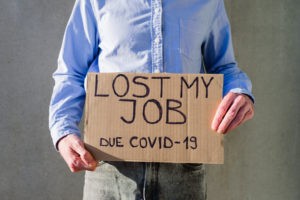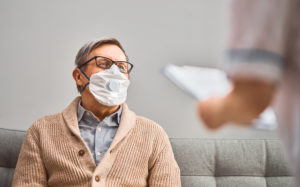Would an Early Retirement and Early Social Security Be Smart?

For older employees who are laid off as a result of the pandemic, the idea of an early retirement and taking Social Security benefits early may seem like the best or only way forward. However, cautions Forbes in the article “Should You Take Social Security Earlier Than Planned If You’re Laid Off Due to COVID-19?,” this could be a big mistake with long-term repercussions.
In the recession that began in 2008, there were very few jobs for older workers. As a result, many had no choice but to take Social Security early. The problem is that taking benefits early means a smaller benefit.
In 2009, one year after the market took a nosedive, as many as 42.4 percent of 62-year-olds signed up for Social Security benefits. By comparison, in 2008, the number of 62-year-olds who took Social Security benefits was 37.6 percent.
You can start taking Social Security early and then stop it later. However, there are other options for those who are strapped for cash.
There is a new tool from the IRS that allows taxpayers to update their direct deposit information to get their stimulus payment faster and track when to expect it. There is also a separate tool for non-tax filers.
Apply for unemployment insurance. Yes, the online system is coping with huge demand, so it is going to take more than a little effort and patience. However, unemployment insurance is there for this very same purpose. Part of the economic stimulus package extends benefits to gig workers, freelancers and the self-employed, who are not usually eligible for unemployment.
Consider asking a family member for a loan, or a gift. Any individual is allowed to give someone else up to $15,000 a year with no tax consequences. Gifts that are larger require a gift tax return, but no tax is due. The amount is simply counted against the amount that any one person can give tax free during their lifetime. That amount is now over $11 million. By law, you can accept a loan from a family member up to $10,000 with no paperwork. After that amount, you’ll need a written loan agreement that states that interest will be charged – at least the minimum AFR—Applicable Federal Rate. An estate planning attorney can help you with this.
Tap retirement accounts—gently. The stimulus package eases the rules around retirement account loans and withdrawals for people who have been impacted by the COVID-19 downturn. The 10% penalty for early withdrawals before age 59½ has been waived for 2020.
If you must take Social Security, you can do so starting at age 62. In normal times, the advice is to tap retirement accounts before taking Social Security, so that your benefits can continue to grow. The return on Social Security continues to be higher than equities, so this is still good advice.
For more information on how the coronavirus has affected retirement planning see https://galligan-law.com/massive-changes-to-rmds-from-stimulus-package/
Reference: Forbes (April 15, 2020) “Should You Take Social Security Earlier Than Planned If You’re Laid Off Due to COVID-19?”

